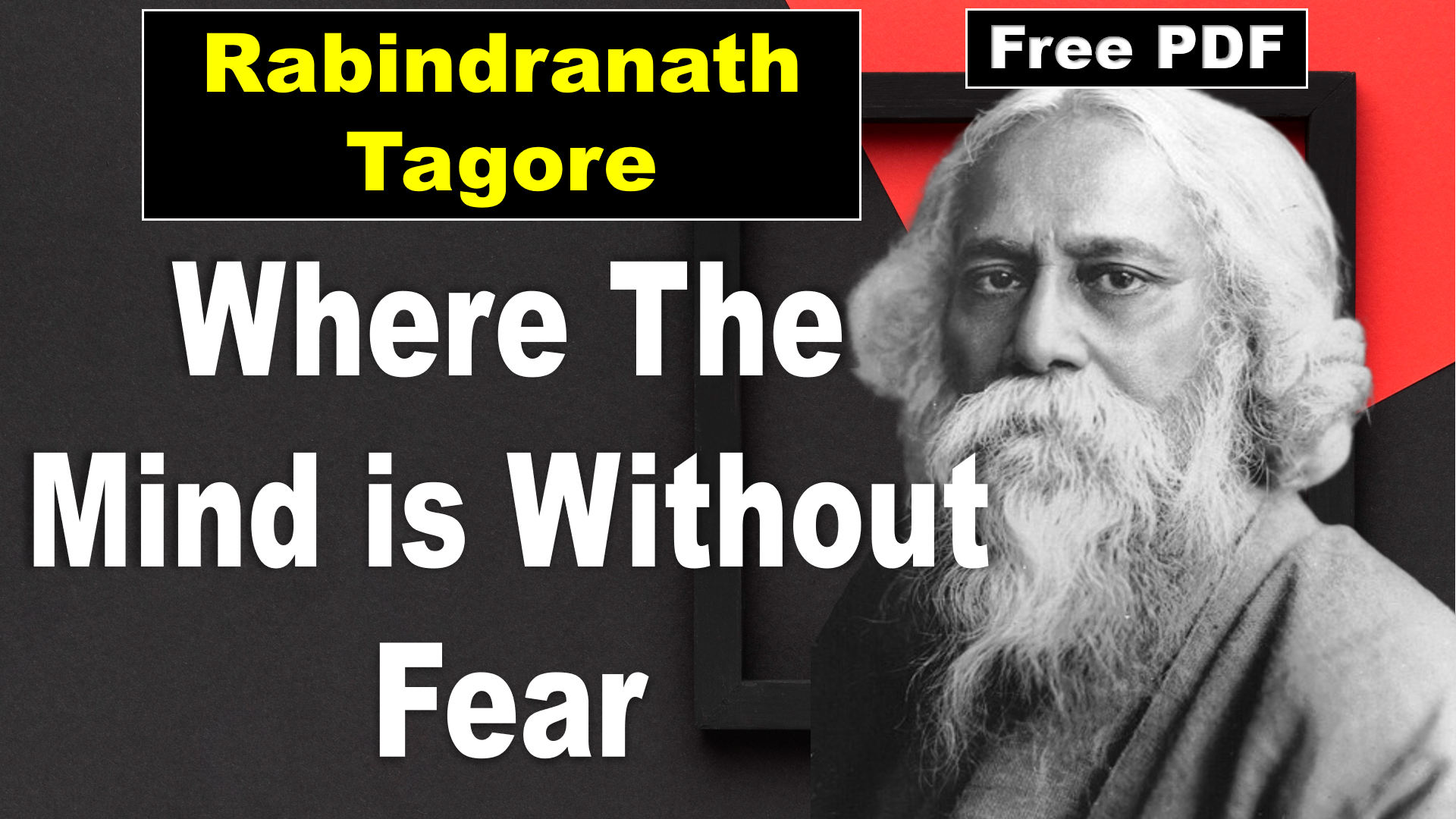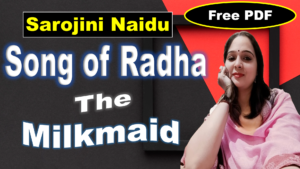Where The Mind Is Without Fear Summary
It is a beautiful and inspiring poem that envisions a world where people are free to think, learn, and grow without fear or hindrance.
The poem begins with the poet’s desire for a world where the mind is without fear and the head is held high. This is a world where people are not afraid to express themselves or to challenge the status quo. It is a world where everyone is encouraged to think for themselves and to pursue their dreams.
The poet then goes on to describe the kind of world he envisions. It is a world where knowledge is free and where everyone has the opportunity to learn and grow. It is a world where people are not divided by narrow domestic walls, but where they are united by their common humanity. It is a world where words come out from the depth of truth and where people are sincere in their dealings with each other.
The poet then speaks of the importance of striving for perfection. He believes that we should always be striving to be better people and to make the world a better place. He also emphasizes the importance of reason and the need to avoid being bogged down by dead habit.
Finally, the poet prays to God to lead his country into this heaven of freedom. He wants his country to be a place where all people can live and thrive without fear or oppression.
Tagore’s poem is a powerful and moving plea for a better world. It is a reminder that we should never give up on our dreams of a more just and equitable society.
Key Points
Author: The poem is written by Rabindranath Tagore, a renowned Bengali poet and Nobel laureate. He is one of the most important Bengali writers in Indian history.
Form: This poem is written in free verse, without a specific rhyme scheme. The original Bengali version of the poem is called “Chitto jetha bhoyshunyo”, and was published in 1910.
Speaker: The speaker in the poem is Rabindranath Tagore himself, expressing his hopes for his country, India.
Setting: The poem was written during the British rule in India, a time when the country was in the midst of protests and demonstrations against British rule.
Theme: The main theme of the poem is freedom – freedom from fear, freedom to hold one’s head high with dignity, freedom to acquire knowledge, and freedom from divisive prejudices.
Tone: The tone of the poem is hopeful and visionary. Tagore expresses his hopes and dreams for his country with a sense of optimism.
Style: Tagore’s style in this poem is direct and unambiguous. He uses simple language to convey profound social and political messages.
Message: The message of the poem is clear: Tagore dreams of an India where people live without fear, where knowledge is free, where the world has not been broken up into fragments by narrow domestic walls, where words come out from the depth of truth, and where tireless striving stretches its arms towards perfection.
Rabindranath Tagore
Birth and Early Life: Rabindranath Tagore was born on May 7, 1861, in Calcutta, Bengal Presidency, British India (present-day Kolkata, West Bengal, India).
Family: He was the youngest son of Debendranath Tagore, a leader of the Brahmo Samaj.
Education: Tagore started writing poetry at the age of eight. At the age of sixteen, he released his first substantial poems under the pseudonym Bhānusiṃha.
Works: Tagore reshaped Bengali literature and music as well as Indian art with Contextual Modernism in the late 19th and early 20th centuries. His notable works include Gitanjali, Ghare-Baire, Bharoto Bhagyo Bidhata, Gora, Jana Gana Mana, Rabindra Sangeet, Amar Shonar Bangla.
Nobel Prize: In 1913, he became the first non-European and the first lyricist to win the Nobel Prize in Literature.
Contributions: Tagore was a poet, novelist, writer, dramatist, essayist, story-writer, playwright, composer, philosopher, social reformer, educationist, linguist, grammarian and painter1. He modernised Bengali art by spurning rigid classical forms and resisting linguistic strictures.
Visva-Bharati University: Tagore’s legacy also endures in his founding of Visva-Bharati University.
Death: Rabindranath Tagore passed away on August 8, 1941.










